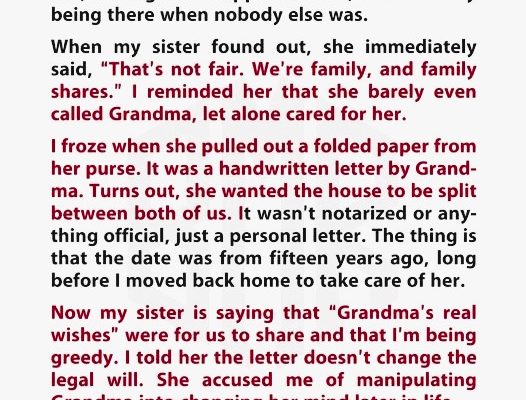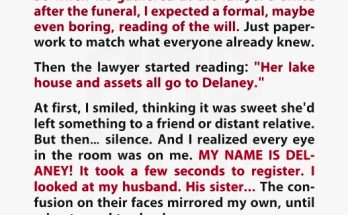I was the one who stayed. When Grandma’s health declined, I moved in, drove her to appointments, cooked her meals, and held her hand through every hard night. The rest of the family drifted away—calls became rare, visits nonexistent. So when she passed and left everything to me in her legal will, it felt like a quiet thank-you. I didn’t expect applause, but I didn’t expect war either.
My sister exploded when she heard. “That’s not fair,” she snapped, “We’re family. We share.” But she hadn’t shared the burden. She hadn’t shown up. Then she pulled out a faded letter—handwritten by Grandma fifteen years ago—saying she wanted the house split between us. It wasn’t notarized, just emotional ink on old paper. And it was written long before I returned to care for her.
Now she’s calling me a thief, accusing me of manipulating Grandma. She’s threatening court, spreading rumors, turning relatives against me. I’m stuck between honoring the woman I loved and defending myself from a family that vanished when it mattered. The legal will is clear, but the emotional battlefield is chaos. That letter—irrelevant in court—has become a weapon in whispers.
I don’t feel greedy. I feel betrayed. I gave years of my life to Grandma, not for money, but because I loved her. If I share the house, I lose half of what she left me. If I don’t, I lose half my family. Either way, I’m painted as the villain. But I know what Grandma wanted in the end—and I was there to hear it.

